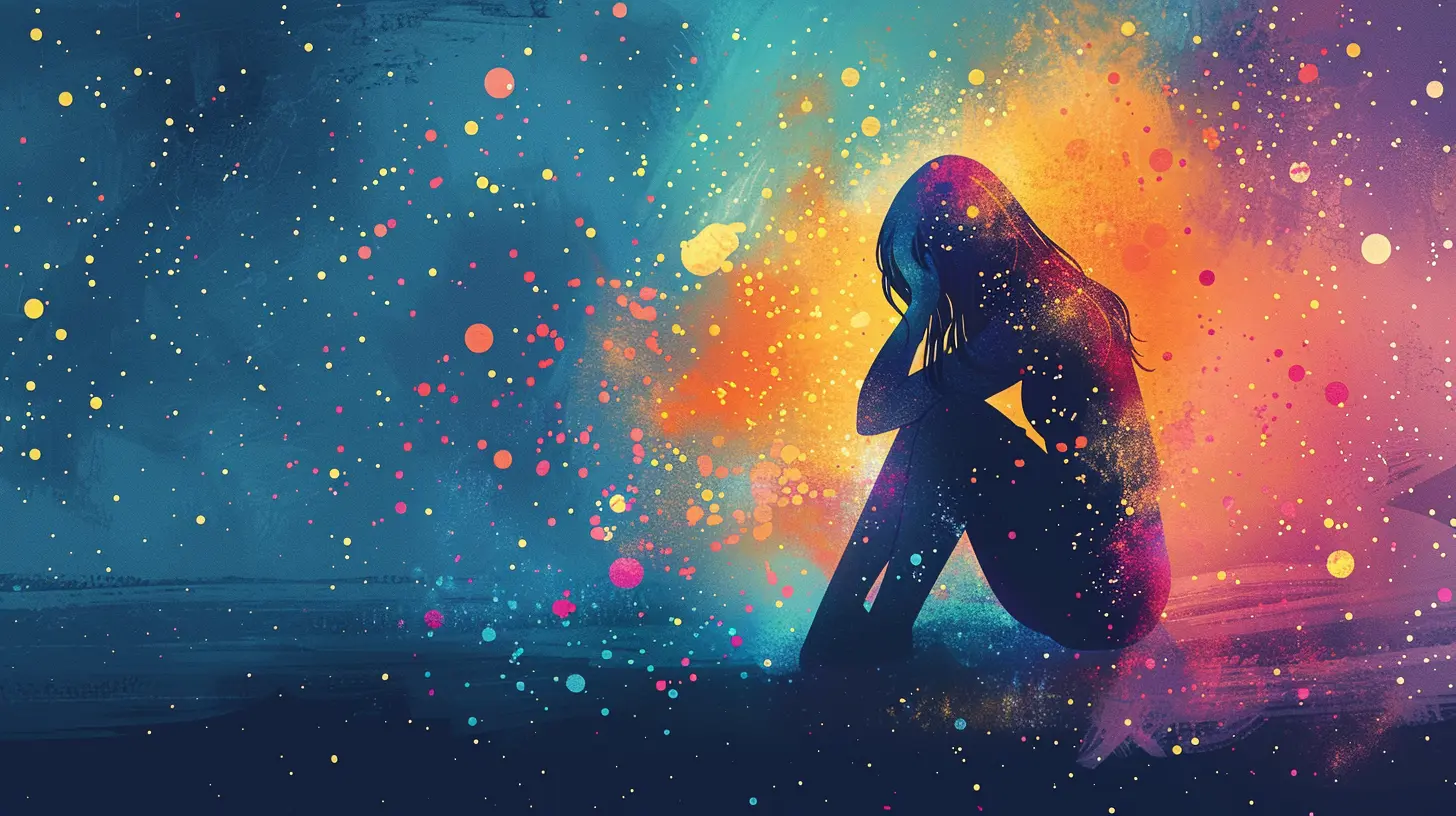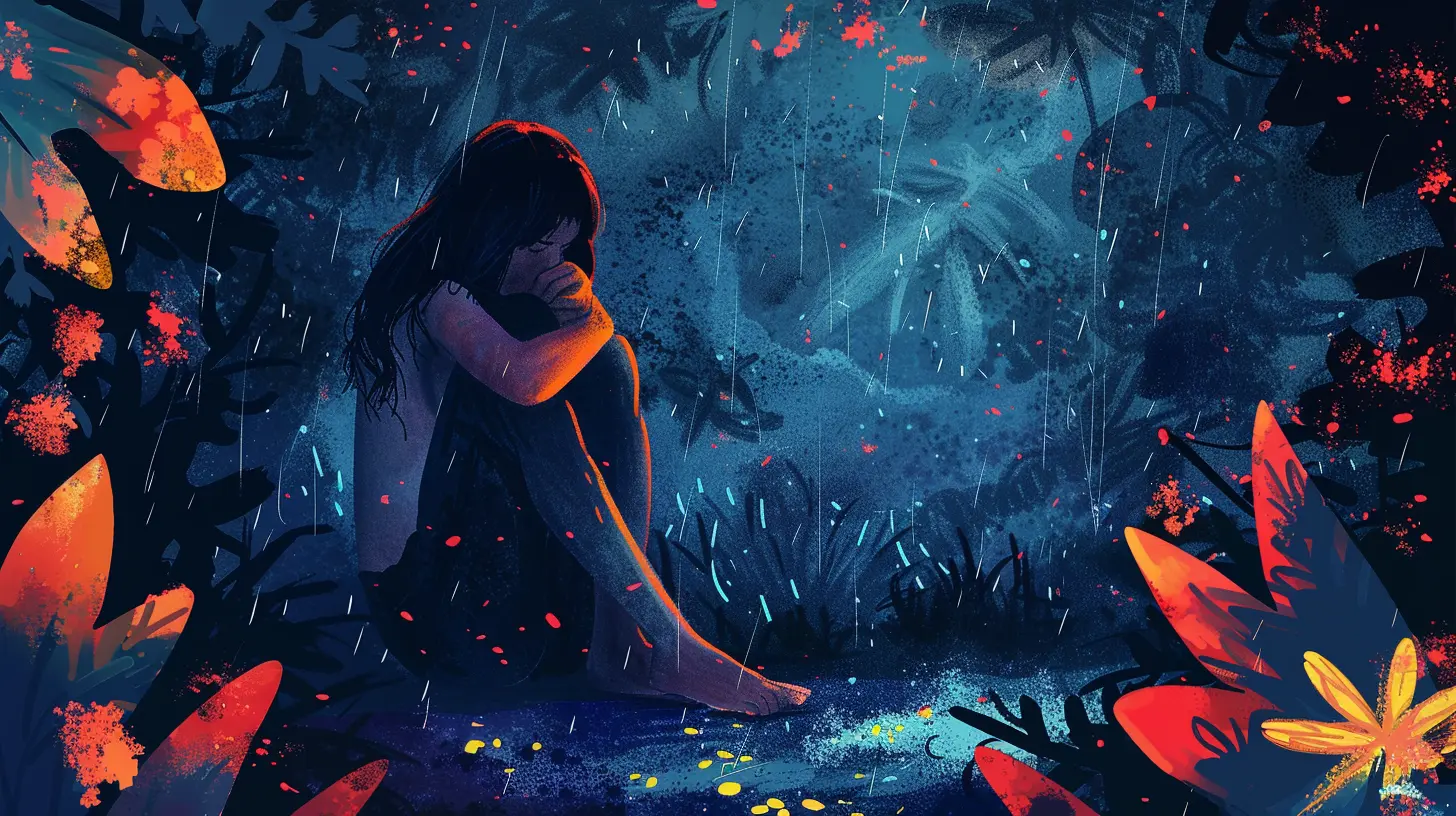How Emotional Resilience Helps You Cope with Social Isolation
31 August 2025
Let’s be honest: social isolation stinks. It’s like being grounded by the universe for no apparent reason, with nothing but your thoughts, a dwindling supply of snacks, and Netflix silently judging you for watching “just one more episode.” Again.
Now, whether you’ve been through a global pandemic, moved to a new city where the only friend you’ve made is your barista (shoutout to Jake who remembers your name and oat milk preference), or you’re just going through a phase of feeling meh about people, social isolation can sneak up on anyone. And guess what swoops in like a caped superhero when life gets eerily quiet? Emotional resilience.
Hold up—what even is emotional resilience? Don’t worry, we’re diving into that and all its feel-good, brain-saving glory. So, buckle up, grab your snack of choice, and let’s unpack how this psychological ninja can help you not lose your mind while binge-watching your fifth documentary on cults.
What Is Emotional Resilience, Really?
Imagine emotional resilience as your brain’s version of bubble wrap. It doesn’t stop life’s messy packages from arriving at your doorstep, but it sure helps soften the blow when they do.Technically speaking, emotional resilience is your ability to bounce back from stress, setbacks, trauma, or any of those delightful curveballs life pitches straight at your face. It’s not about being emotionless or turning into a smiling robot who says, “I’m fine,” while clearly not fine. It's about being able to feel pain, frustration, and sadness without completely falling apart.
Think of it like mental CrossFit. You feel the burn, but you come out stronger (and maybe a tad more humble) on the other side.
Why Social Isolation Feels Like Emotional Quicksand
Let’s not sugarcoat it—our brains are needy little social creatures. We’re wired to connect. Heck, even introverts need people... eventually. When we don’t get our regular dose of social interaction, things get weird. Anxiety starts knocking. Loneliness starts monologuing like a dramatic villain in a soap opera. Motivation packs up and leaves town without even saying goodbye.Here’s why isolation messes with us:
- Lack of feedback loops: Without people around, you start second-guessing yourself. Is your laugh still cute or just annoying now? Did that text come off weird? Is anyone even thinking about you?
- Rumination station: You’ve got more time to think, but not in a productive way. It’s more like your brain hit replay on every cringe moment since 2007.
- The “I’m not enough” monster: Isolation can make you feel unworthy, unloveable, or like society just forgot you exist.
Lovely, right?
But before you start shouting into the void or befriending your plants (no judgment—it’s 2024 and plants are basically family), let’s talk about how emotional resilience doesn’t just help you survive isolation—it teaches you how to thrive in it.
How Emotional Resilience Saves Your Sanity in Social Isolation
1. It Helps You Accept (Not Resist) the Funk
Here’s where it gets spicy: emotional resilience isn’t about pretending everything is fine when it clearly isn’t. It’s about facing the discomfort head-on and saying, “Oh hey, anxiety, back again? Cool cool cool. Pull up a chair.”The more you resist feeling lonely or sad, the more those emotions dig in their heels like a toddler in Target. Resilience helps you acknowledge your feelings instead of suppressing them like you did with your high school poetry phase.
2. It Teaches You How to Reframe the Narrative
Is it social isolation, or is it character development?Emotionally resilient people are basically story editors for their own lives. They rewrite the script. Instead of “I’m so alone, nobody likes me,” it becomes, “I’m learning how to enjoy my own company and set stronger boundaries.” Dramatic? Yes. Effective? Also yes.
Reframing helps you stay in control of the storyline. You might not get to choose the plot twist (surprise, it’s a global crisis!), but you do get to decide what your character does next.
3. It Strengthens Self-Awareness (aka Knowing What the Heck You’re Feeling)
If you’ve ever found yourself crying over a pizza commercial, congratulations—your emotions are trying to tell you something. Resilience means tuning in instead of zoning out.Social isolation shines a spotlight on your inner world, whether you like it or not. Resilient people use that time to listen. What are your triggers? What calms you down? When do you feel most drained?
It’s like becoming besties with yourself, which is pretty convenient when people are suddenly in short supply.
4. It Fuels Adaptability Like Mental WD-40
Let’s face it—life rarely goes according to plan. Isolation might force you to cancel, delay, or reimagine everything from Friday night plans to your five-year goals. Having emotional resilience is like having a stash of backup plans AND the emotional flexibility to say, “Eh, I’ll pivot.”You learn to be okay with not being okay. You slip into new routines, try out new hobbies, maybe even gasp call your mom. You adapt, and slowly, that loneliness starts feeling a little less permanent.
5. It Keeps Hope Alive (Even When Wi-Fi Dies)
Here’s the tea: resilient folks are optimistic—not the toxic kind who pretend everything is rainbows, but the realistic ones who believe that things can get better, even when life is handing out lemons and not a single recipe for lemonade.Resilience whispers, “This sucks now, but it’s not forever.”
How to Build Emotional Resilience Without Turning into a Self-Help Robot
Okay okay, so emotional resilience is cool. But what if you’re not naturally a zen monk with Buddha-level patience? Chill. Resilience isn’t something you either have or you don’t—it’s like a muscle. You can build it. Stretch it. Work it out till it stops pulling when life asks it to do the emotional splits.1. Name Your Feelings like You’re on a Talk Show
Instead of bottling stuff up, start labeling your emotions. Are you anxious? Frustrated? Disconnected? Slightly homicidal toward slow internet?Naming your feelings gives you power. It’s like calling customer service—once you know what the problem is, you can actually do something about it (or at least complain more effectively).
2. Stay Connected (Even If It’s Just Memes)
Just because you can’t be physically close to people doesn’t mean you’re doomed to wallow in a blanket fort of despair. Shoot that text. Join the Zoom hangout (with pants this time, please). Share the weird meme that made you snort-laugh at 2 a.m.Human connection doesn’t have to be deep heart-to-hearts 24/7. Even light banter keeps your social brain from rusting.
3. Practice Self-Compassion Like a Therapist Who Cares
You wouldn’t tell your friend they suck at life because they’re feeling lonely, so why say that to yourself? Be kind. Give yourself a break. You're not supposed to be thriving in isolation—you’re surviving. That alone deserves a trophy.4. Move Your Body (Yes, Even 10 Seconds Counts)
Exercise isn’t just a punishment for eating cake. It literally boosts your mood, resets your nervous system, and gives you something to do besides spiral about how quiet your apartment is.And no, you don’t need a Peloton or a six-pack. Dance in your kitchen. Stretch like a sleepy cat. Walk while making passive-aggressive eye contact with birds. Whatever gets you out of your head and into your body.
5. Set Tiny, Manageable Goals
No one’s asking you to write the next great American novel while isolated. (Unless you want to. In which case, go off, Hemingway.)But setting small goals—like making your bed, drinking more water, or finally throwing away that expired yogurt—can give you a sense of control and progress. Resilient people don’t wait for motivation to magically appear. They start small and let momentum do the rest.
The Bottom Line (Because Every Emotional Rollercoaster Needs an Exit Sign)
Social isolation is tough. It’s quiet, lonely, and sometimes feels never-ending. But emotional resilience? That’s your cheat code, your secret weapon, your invisible armor against the emotional chaos of too much alone time.It doesn’t mean you’ll never feel sad or isolated again. It means you’ll know what to do with those feelings when they show up uninvited. You’ll name them, face them, reframe them, and maybe even laugh at them a little. (Sarcasm is a coping strategy, after all.)
So next time life pulls a fast one and traps you in a bubble of social solitude, just remember—you’ve got emotional resilience tucked in your back pocket, ready to help you bounce back like a psychological trampoline.
all images in this post were generated using AI tools
Category:
Emotional ResilienceAuthor:

Matilda Whitley
Discussion
rate this article
1 comments
Ariadne McVaney
Emotional resilience is crucial for navigating social isolation, as it fosters adaptability and promotes healthy coping strategies. By enhancing self-awareness and emotional regulation, individuals can better manage feelings of loneliness and cultivate a sense of connection despite physical distance.
September 2, 2025 at 3:44 AM

Matilda Whitley
Thank you for highlighting the importance of emotional resilience in overcoming social isolation. Your insights on adaptability and self-awareness are vital for fostering connections during challenging times.


